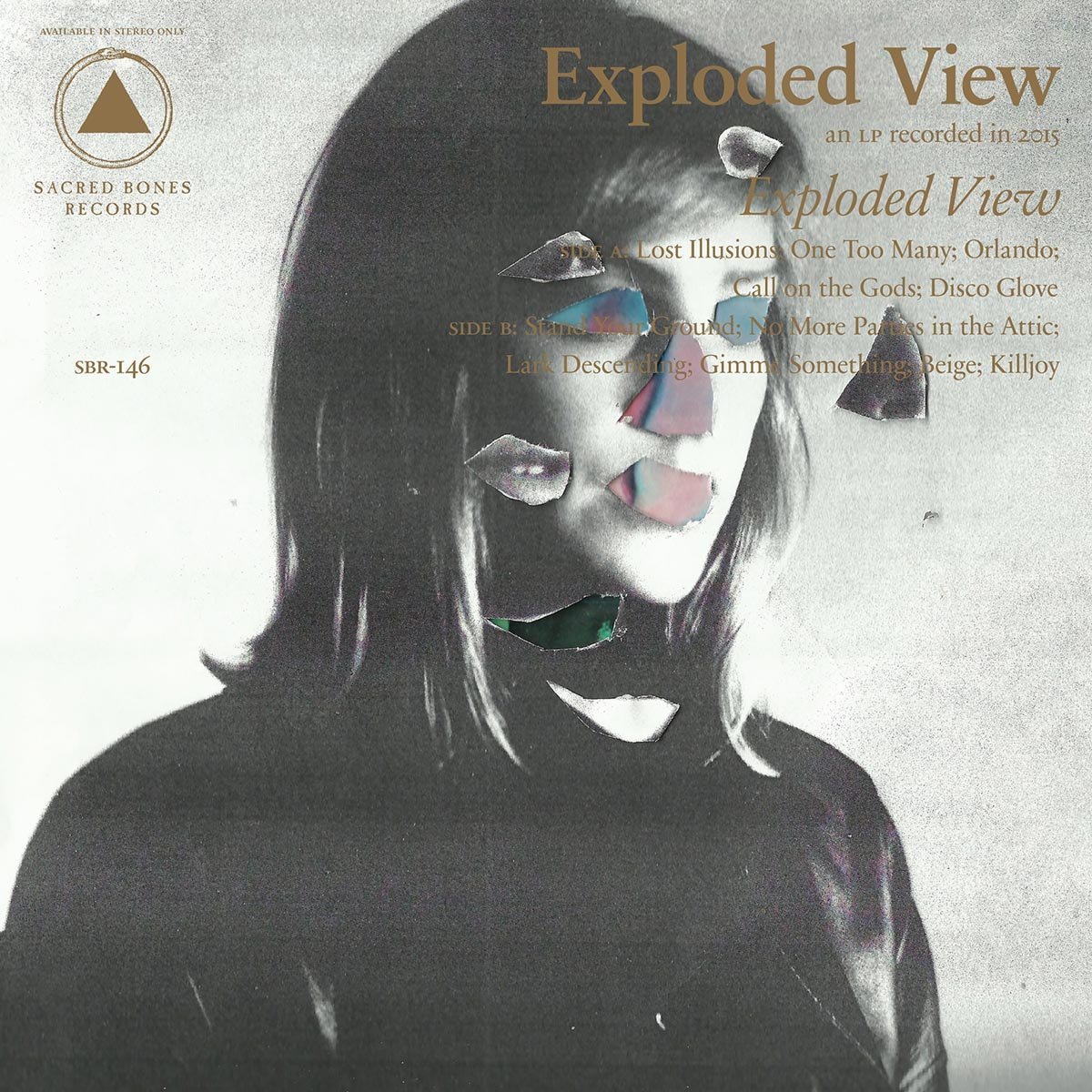“A schematic or technical drawing of an object, that shows the relationship or order of assembly of various parts. Components of an object slightly separated by distance, or suspended in surrounding space in the case of a three-dimensional exploded diagram”. For the uninititated, this is the definition of an Exploded View. A unique art form that’s name has been borrowed suitably by a cross-continental experimental project. The Mexico City-based quartet – that collages Berliner post-punk musician Anika with three Mexican producers including synth player Hugo Quezada – in many ways fit the same criteria as the architectural discipline through their sound and methodology.
Even before digging into the contents within, the album sleeve demonstrates Exploded View’s inspiration and is a good indication of what to expect from the band. Vocalist Anika’s facial features are sliced out of their sockets (similar to Mini Mansions‘s ‘Freakout’ music video) and pasted haphazardly at a slight distance to their original location show how physical beauty is a sum of their parts, fit the art form of an Exploded View. Furthermore, the inclusion of a tracklist and the record label over the top of a worn-out photo also prepare the listener for an album that could have been found in a spider-webbed attic amongst other unappreciated 1970s avant-garde pysch records.
Their debut self-titled album was recorded in a studio set up in such a way that it consumed every inch of its surrounding space, making for a similar 3-Dimensional experience. When pairing this with improptu compositions, it makes an musical environment that’s unpredictable but also powerfully unsettling. For example, their compositions supposedly rely on sustaining repeated soporific drum beats and synth motifs, but listen closer and you can hear layers that alternate including scrapping, scratching and coarse noise that could be a mix of planned instrumentation and accidental product of the room they inhabit.
What ties everything together is Anika’s intruging lyrics. With a background in political journalism and honouring political musicians such as Yoko Ono on her solo album, it’s easy to interpret her words with PJ Harvey-style activitism and lament. Lines such as “I’ve seen too many good men crumble” (‘One Too Many’) and “Do you really know what it’s like to pull the trigger? (‘Lark Descending’) sound like they’re inside the mind of a traumatized reporter reflecting on journalistic anguish. However, it’s delivered with such a lackadaisical delivery (imagine Roísín Murphy at her most mysterious) that not only is this a starking contrast, it suggests that Anika and much of society will become desenstized to such atrocoties.
Later, the woe turns into life-surrending in the form of destructive advice: “Sell your clothes, sell your soul” (‘Lost Illusions’) and “Living in the glory days where nothing matters” (‘No More Parties In The Attic’). It sounds gloomy and unhelpful but the message is clear. Just like the Exploded View diagrams that they borrow their name from – once desconstructed, sliced up and analyzed meticiously, the idea of superiority and impressiveness in anything is less present.




